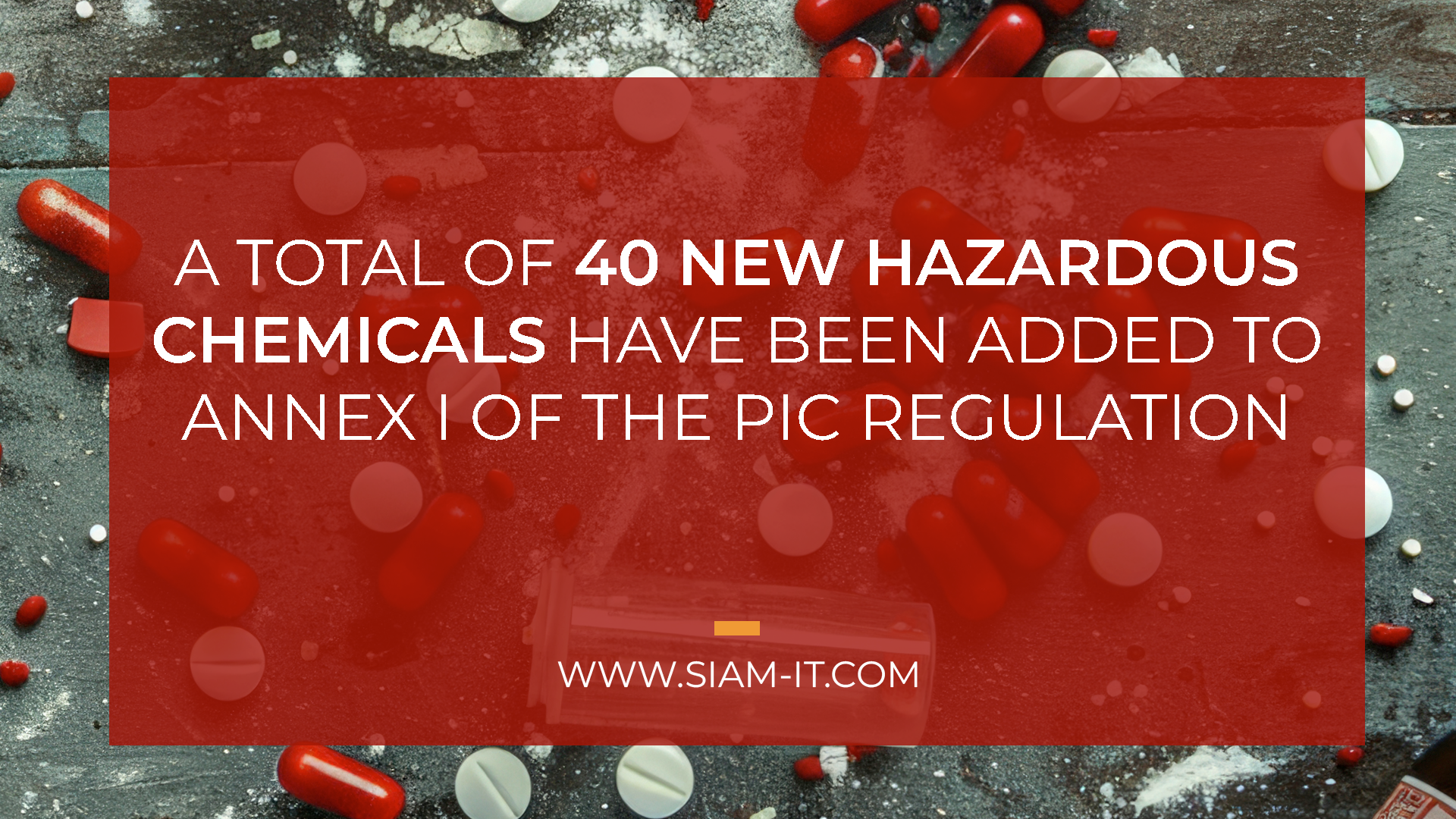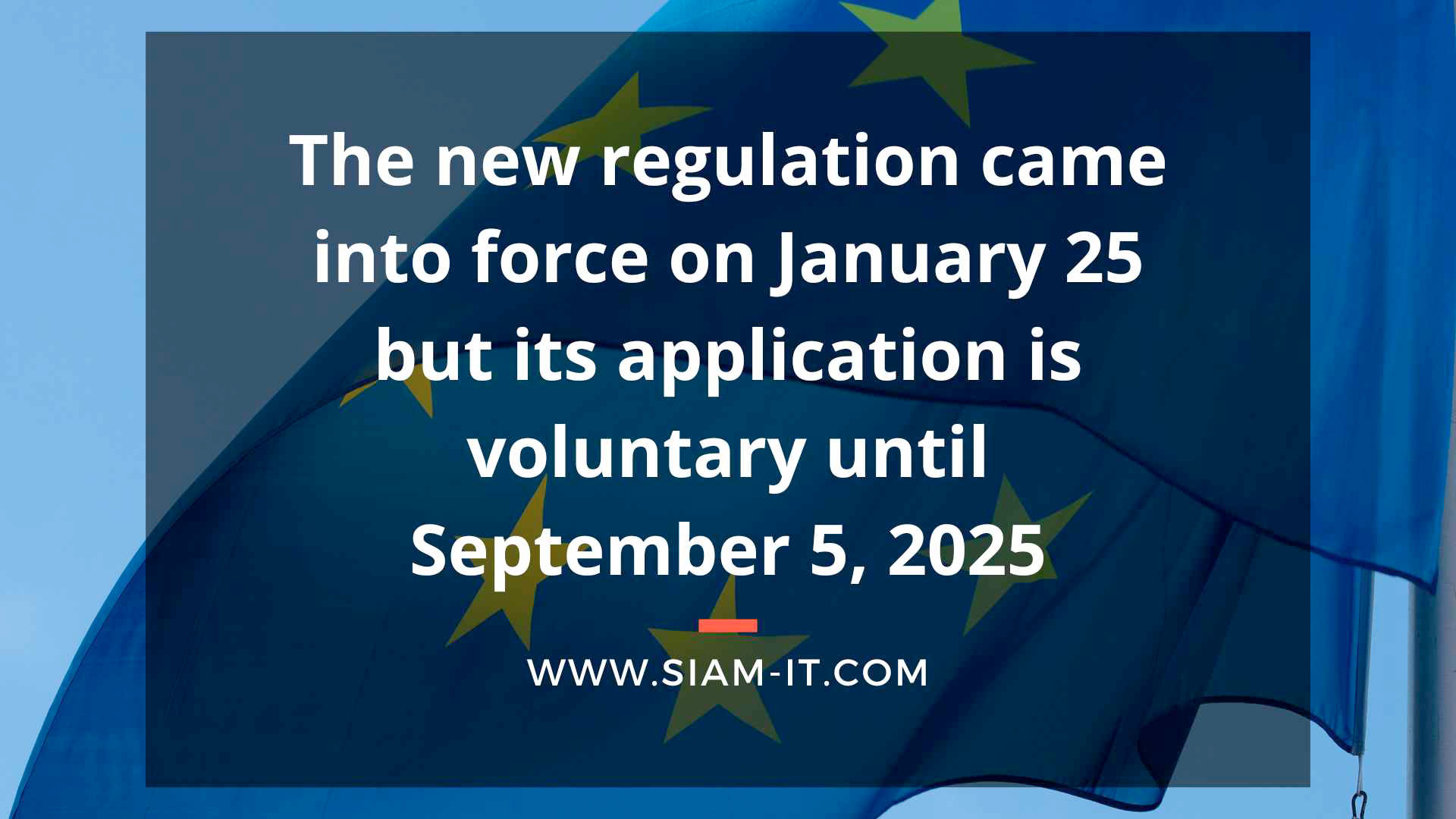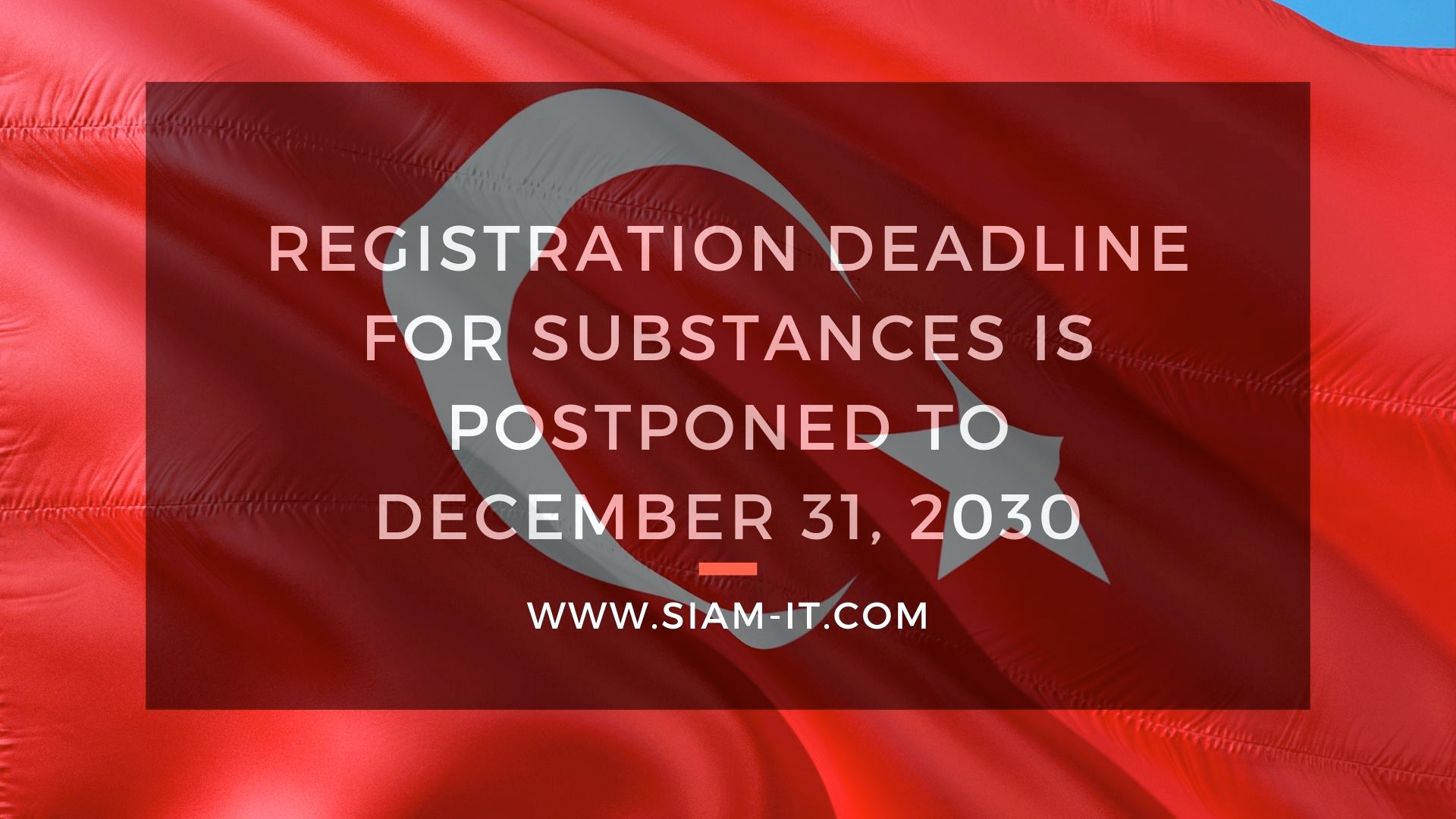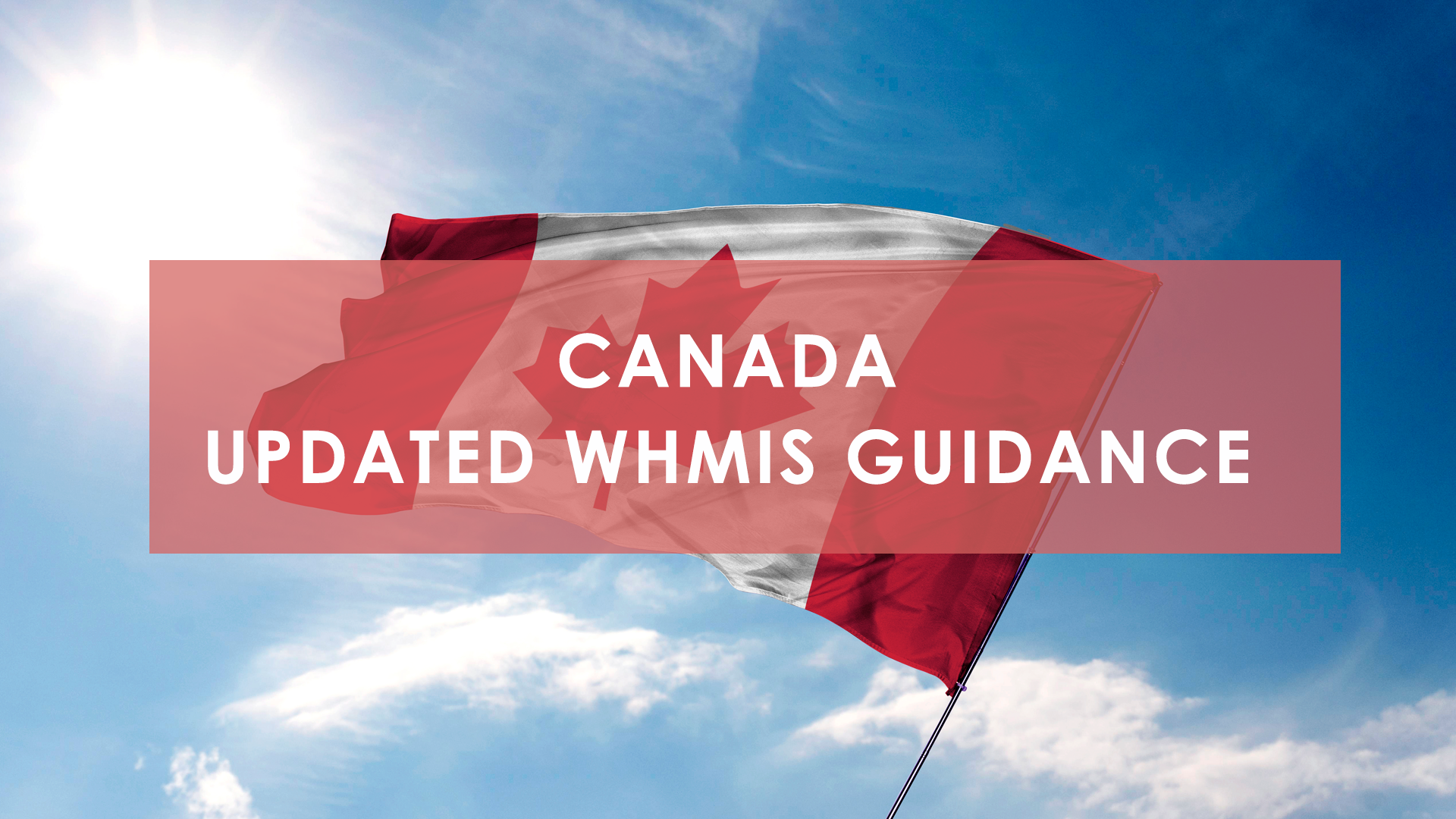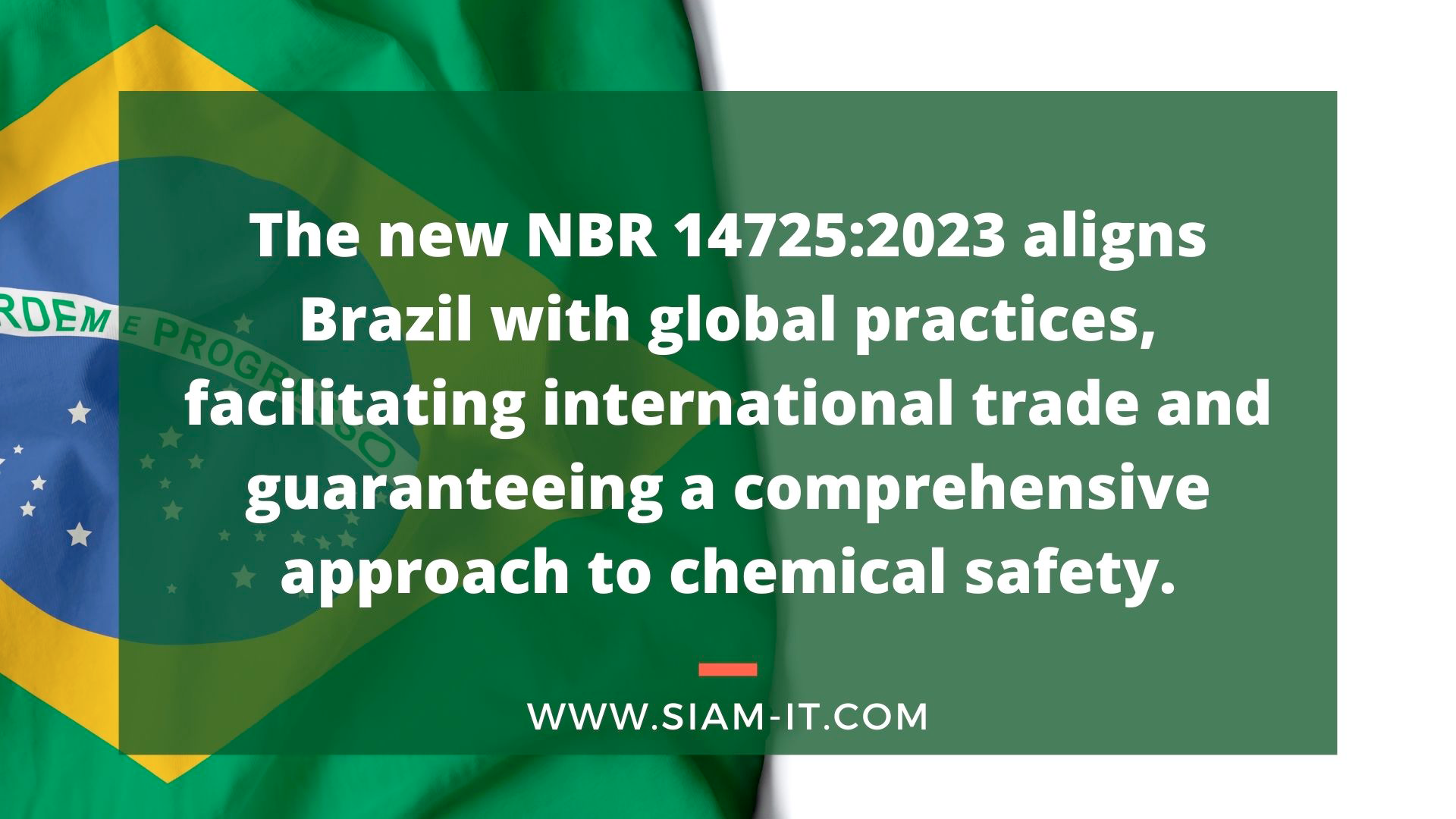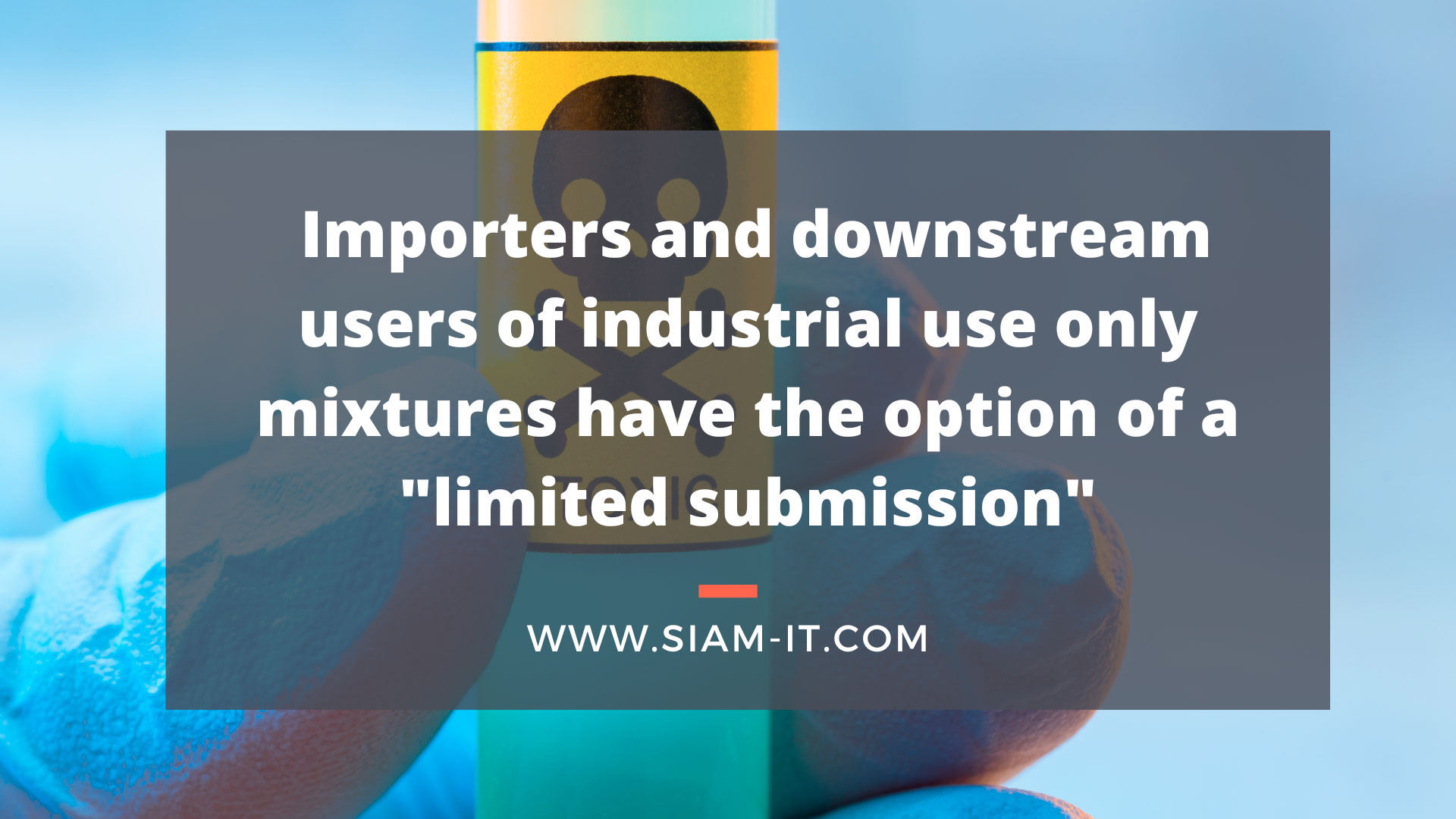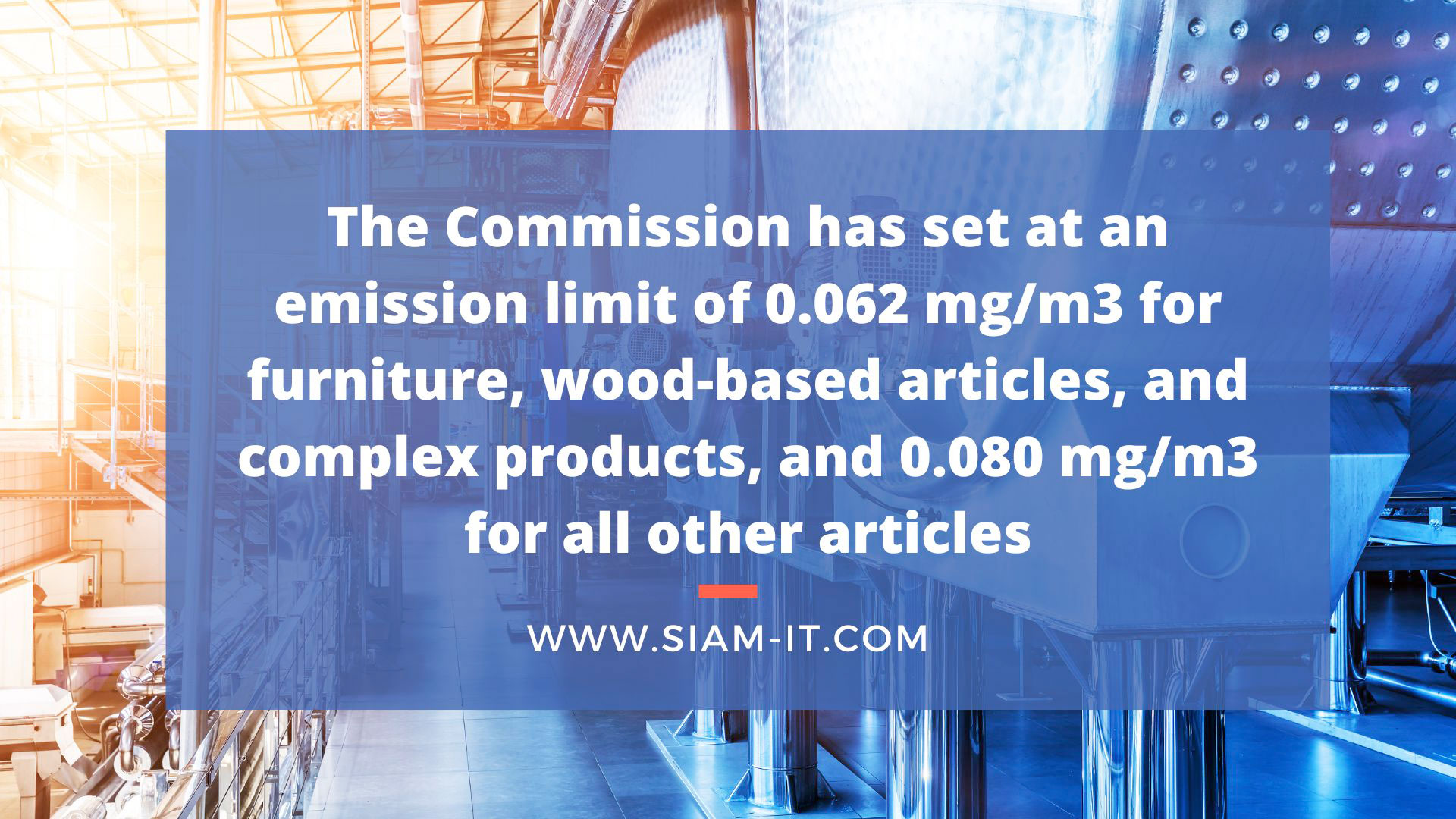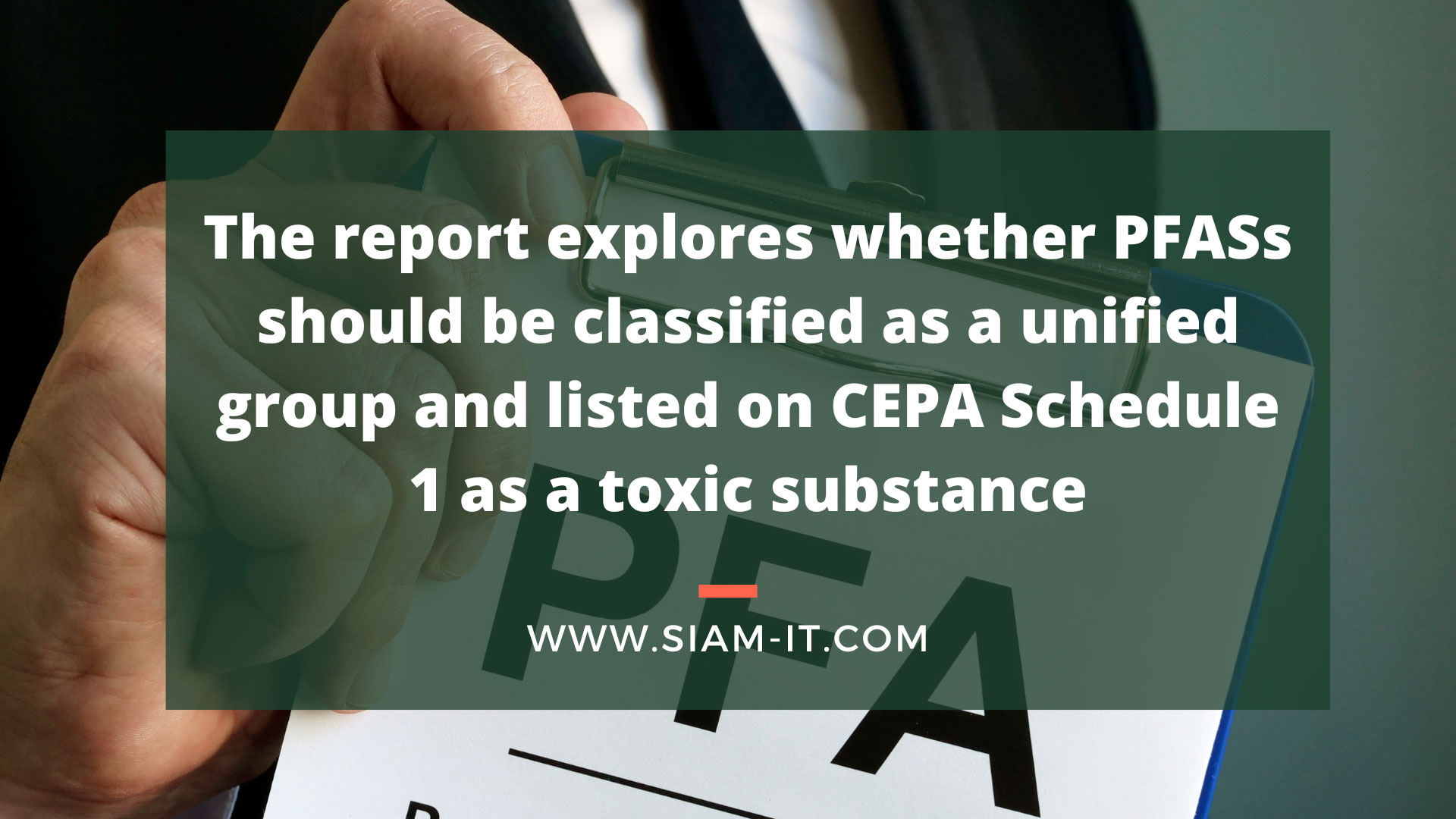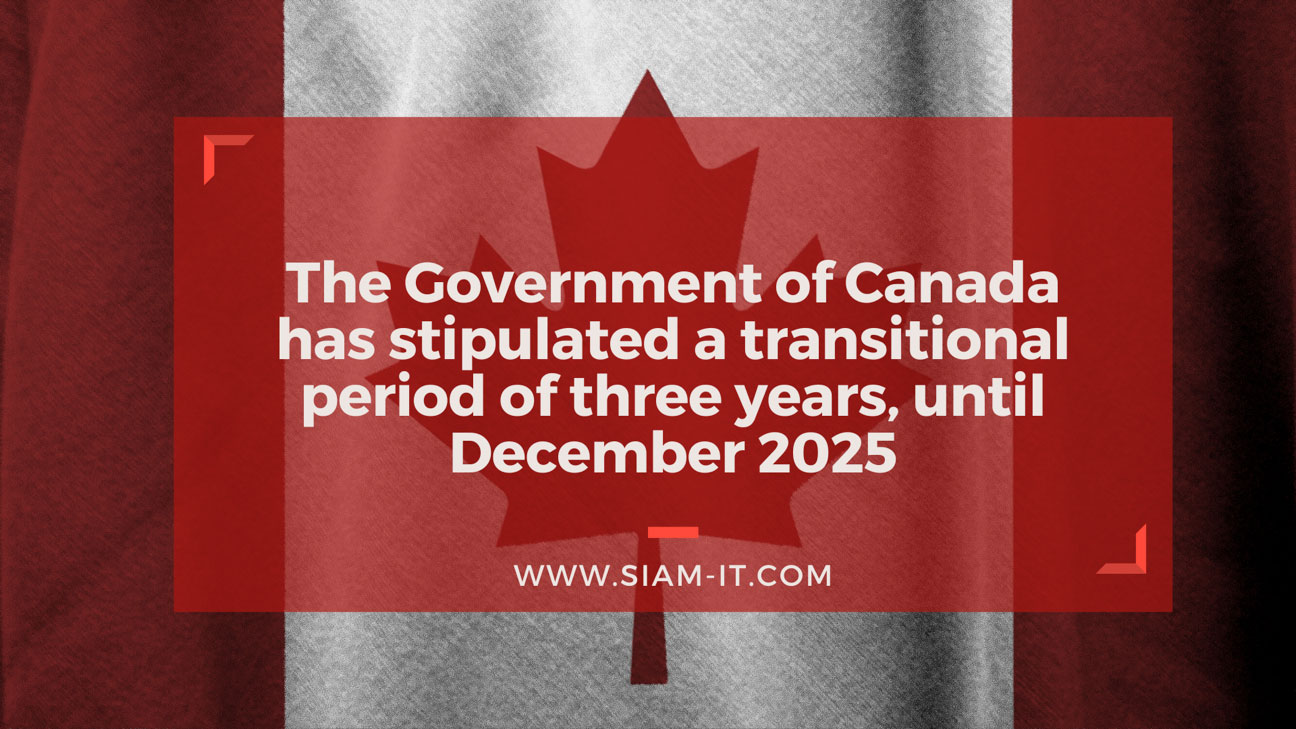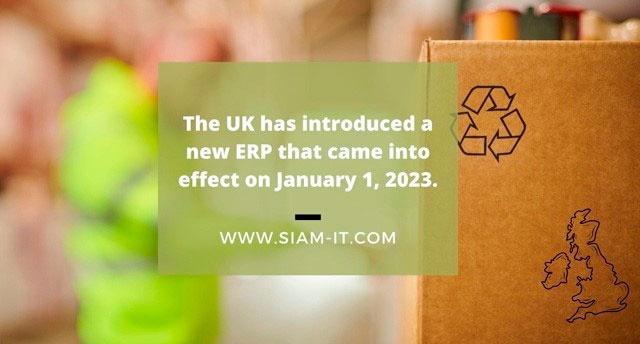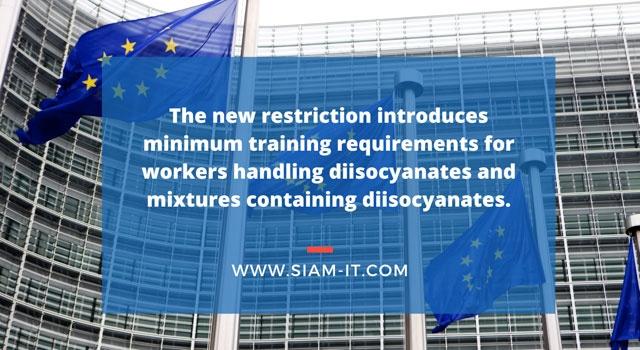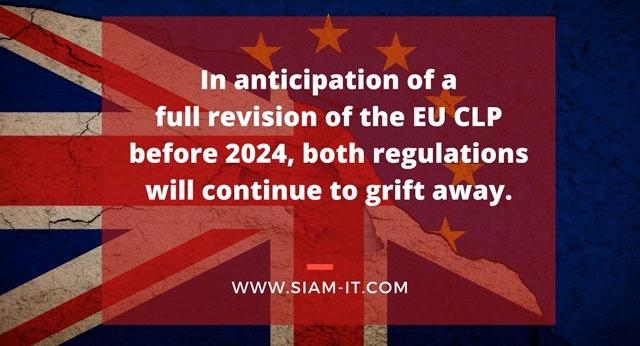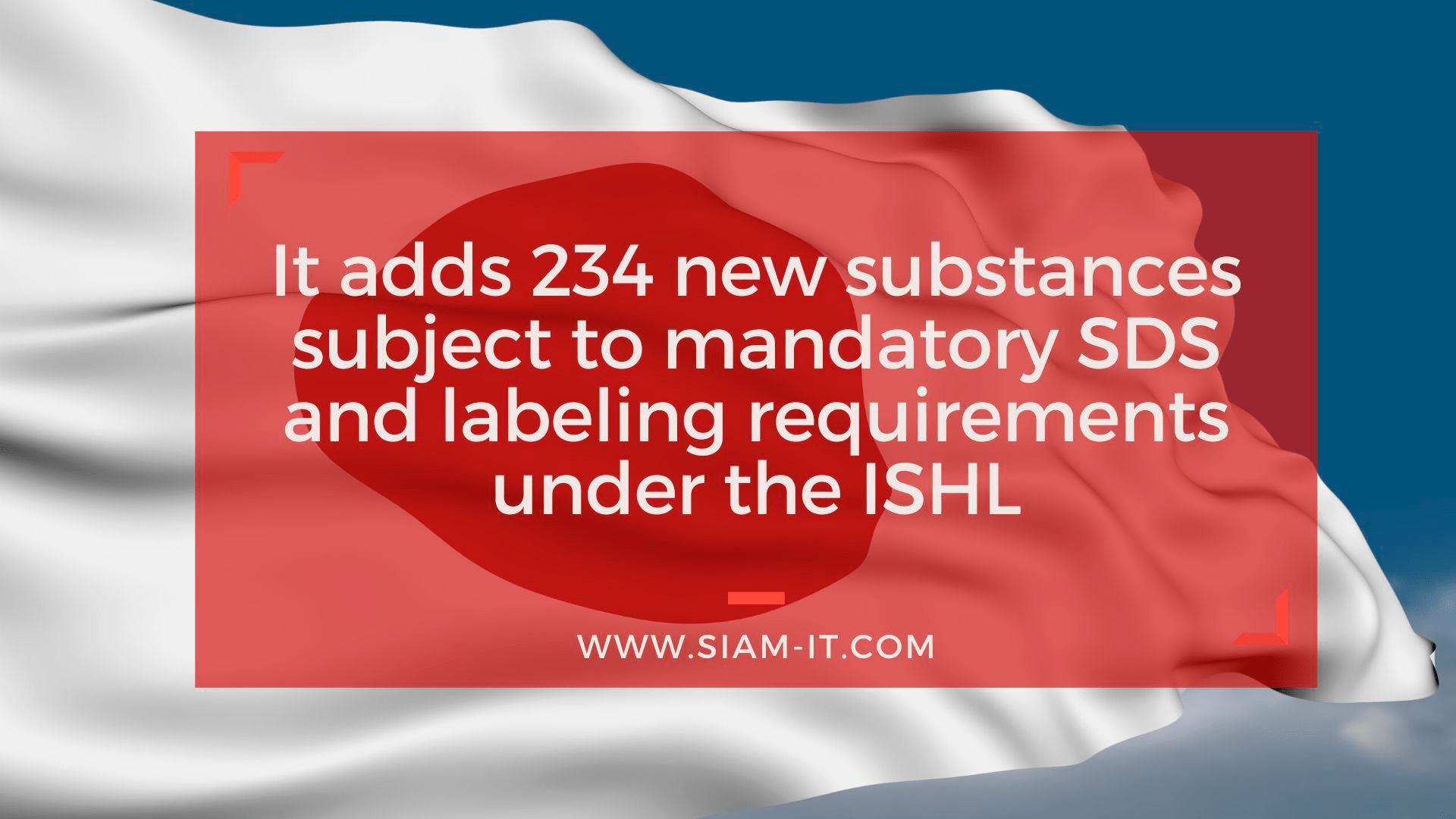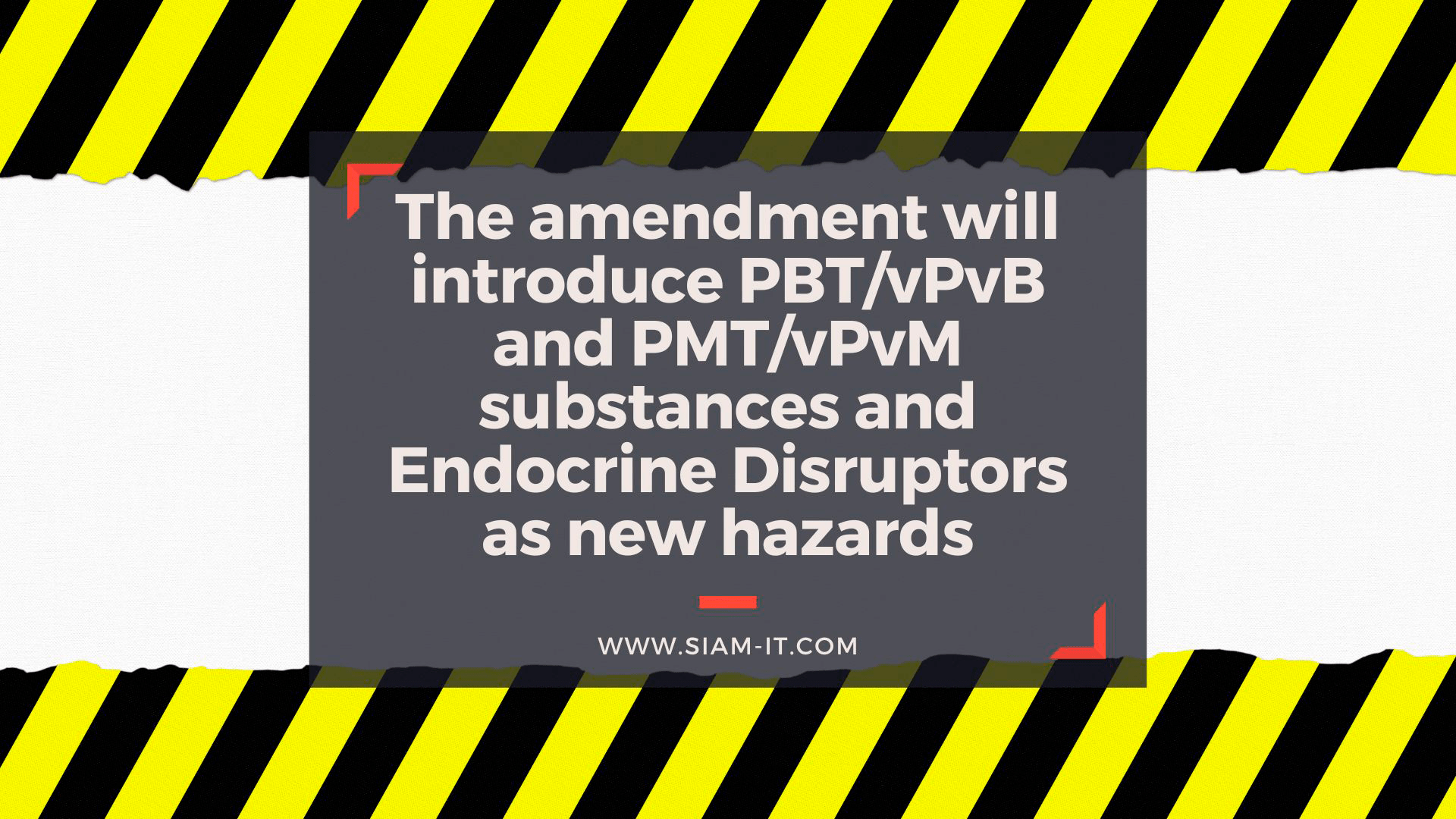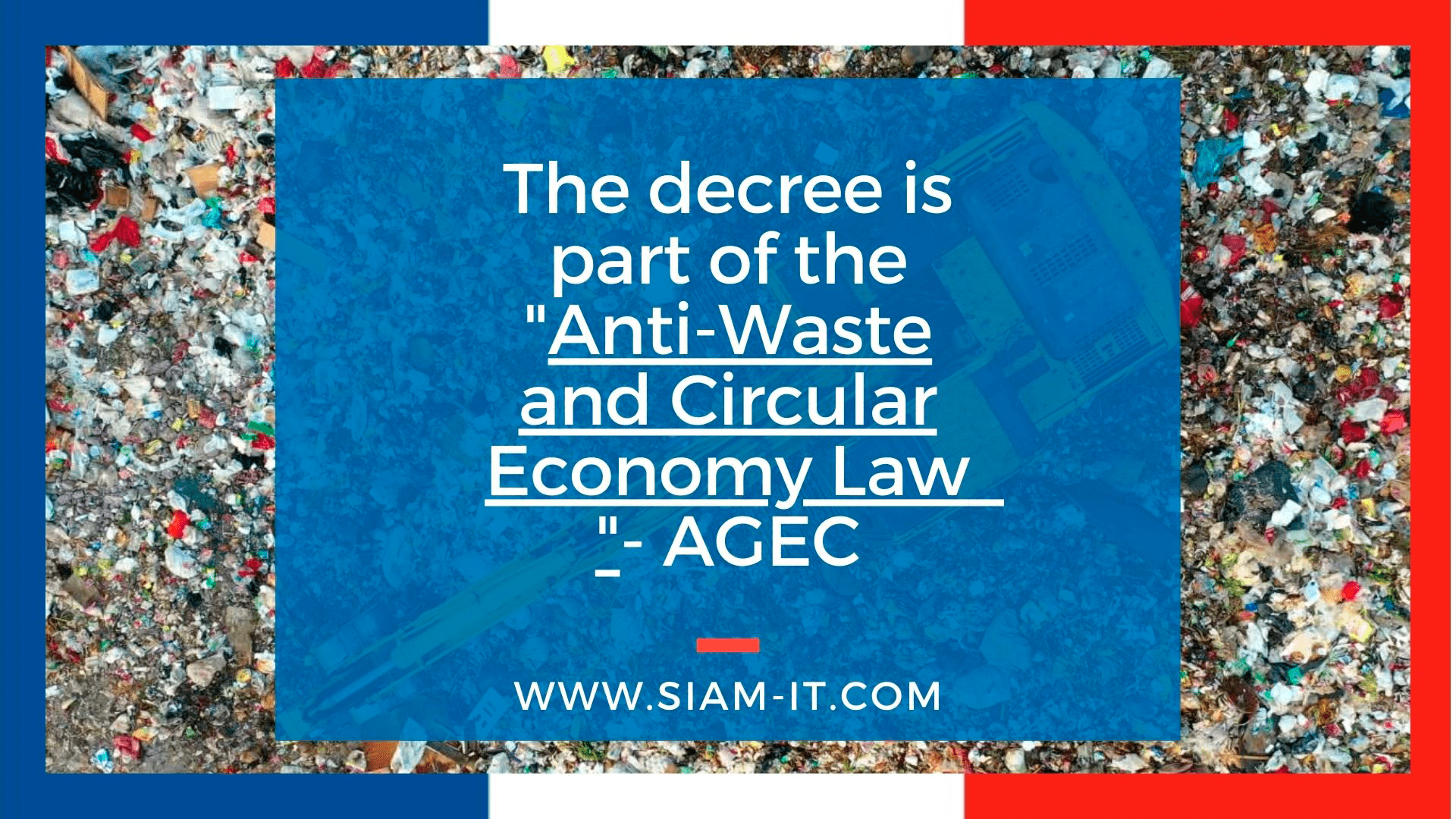News
The European Chemicals Agency (ECHA) has added two new substances to the SVHC Candidate List, which now includes 253 entries. The new additions are n hexane and 4,4' [2,2,2 trifluoro 1 (trifluoromethyl)ethylidene]diphenol (BPAF) and its salts, included due to their risks to human health.
On December 25, 2025, Japan took a key step towards international harmonization by officially publishing the JIS Z 7252:2025 and JIS Z 7253:2025 standards, aligned with the ninth edition of the Globally Harmonized System (GHS).
The new edition of the Dangerous Goods Regulations (IATA DGR), in force since 1 January 2026, includes significant changes in classification, packaging, and transport, particularly for batteries and hybrid vehicles.
The REF-12 report by ECHA reveals significant non-compliance in substances and mixtures imported into the European Union, with the United Kingdom standing out among the most affected countries due to Brexit-related registration issues.
Following a ruling by the Court of Justice of the European Union, the Commission has annulled the harmonised classification of titanium dioxide powder (with specific characteristics) and the associated labelling requirements.
The European Chemicals Agency (ECHA) has announced that its opinion on the classification of ethanol will be postponed until 2026, while the evaluation of this substance’s use in biocidal products and other industrial sectors continues.
Belgian authorities have announced a modification to the fees applicable for notifications of hazardous mixtures to poison centres; a change that will impact companies marketing chemical products in the country.
Colombia takes a historic step in chemical management with the creation of its first national inventory, which brings together more than 4,400 registered substances and offers an interactive platform to ensure transparency and safety in the sector.
The EN ISO 16321 standard redefines eye protection criteria, introducing stricter requirements to enhance safety and worker well-being in high-risk environments. This update marks a milestone in the industry, ensuring that equipment meets the highest international standards.
The European Union has approved postponing the entry into force of the revised provisions of Regulation 1272/2008 (CLP), giving industry more time to adapt to the changes without compromising safety.
Anvisa (Agência Nacional de Vigilância Sanitária de Brasil) has published a manual establishing a new procedure for calculating the estimated acute oral toxicity in cleaning products, replacing the traditional in vivo test with a safer and more transparent method.
The European Commission has officially approved Implementing Regulation (EU) 2025/2067, which introduces a 19.5% increase in REACH registration fees for companies that are not small or medium-sized enterprises (SMEs). This amendment, published in the Official Journal of the European Union on 16 October 2025, will take effect on 5 November.
On August 7, 2025, the Ministry of Employment and Labor issued Notification No. 2025-50 , which modifies the structure and criteria of Safety Data Sheets (SDS) in South Korea. Among the most significant changes are the introduction of new hazard categories, updates to classification and testing methods, and the requirement to include applicable laws in Section 15 in a specific order.
As of October 1, 2025, China officially enforces two new standards that strengthen the management of dangerous goods across its territory. Their implementation follows a six-month transition period since their publication in March.
On October 15, the corrigendum 2025/90818 was published, introducing corrections to the Spanish wording of several hazard statements (H-phrases) included in the CLP Regulation (EC) No 1272/2008 on the classification, labelling, and packaging of substances and mixtures.
The recent classification of decabromodiphenyl ethane (DBDPE) (CAS 84852-53-9) as a substance of very high concern (SVHC) marks a new milestone in European regulatory policy. This decision may have significant implications for companies that handle it in their processes or products.
The Government of Peru has published Supreme Decree No. 018-2025-SA, which establishes the Technical Regulation on the Environmental and Sanitary Management of Polychlorinated Biphenyls (PCBs). This new regulation represents a significant step forward in Latin America in terms of chemical safety and environmental protection.
On 12 September 2025, the United Nations Economic Commission for Europe (UNECE) published the eleventh revised edition of the Globally Harmonised System of Classification and Labelling of Chemicals (GHS), available in English, French and Spanish. This new version introduces significant changes with direct implications for the chemical industry, particularly with regard to environmental classification, labelling and hazard communication.
The European Union has taken a new step in its commitment to protecting human health and the environment by adding several substances classified as CMR (carcinogenic, mutagenic or toxic to reproduction) to Annex XVII of the REACH regulation.
On July 1, 2025, South Africa has taken a further step in the international harmonization of chemical safety by implementing the tenth revised edition of the Globally Harmonized System of Classification and Labelling of Chemicals (GHS) by the United Nations.
The General Court of the European Union has issued a ruling annulling the classification of titanium dioxide as a carcinogenic substance by inhalation, a decision that is a significant relief for the European chemical industry.
On 16 June, the European Commission adopted Implementing Decision (EU) 2025/1175, laying down provisions for the implementation of Regulation (EC) No 1223/2009 as regards the glossary of common names of ingredients for use in the labelling of cosmetic products.
The European Parliament has shown broad political and industry consensus on the need to speed up the approval of biopesticides as part of its strategy to reduce the use of chemical pesticides in agriculture.
On 3 June 2025, the Peruvian Ministry of Health (MINSA) approved by Supreme Decree N° 007-2025-SA the Regulation of Law N° 31182 which protects the health and physical integrity of people from lead content in paints and other coating materials.
The Australian Industrial Chemicals Introduction System (AICIS) launched a consultation this April on the possibility of linking some 700 chemical records from the Australian Industrial Chemicals Inventory (AIIC) with their assessment reports from Australia's previously implemented system known as NICNAS (National Industrial Chemicals Notification and Assessment System) with the aim of streamlining access to assessment data linked to Specific Information Requirements (SIRs).
ECHA adds 3 new entries to the Candidate List. Following the addition of 3 new entries, the EU Candidate List of Substances of Very High Concern (SVHC) now comprises 250 substances.
The Spanish Chemical Industry Business Federation (FEIQUE) and the Spanish Confederation of Business Organizations (CEOE) have publicly expressed concern over the new tariff agreement signed between the European Union and the United States, warning of its negative effects on both the chemical industry and the broader Spanish business fabric.
On 8 July 2025, the European Commission presented proposal COM(2025) 531, which affects Regulation (EC) No 1272/2008 on classification, labelling and packaging of substances and mixtures (CLP) , as well as Regulation (EC) No 1223/2009 on cosmetic products and Regulation (EU) No 2019/1009 on fertiliser products.
The European Commission has proposed new measures to strengthen the protection of workers from hazardous chemicals, with the aim of reducing serious diseases and improving safety in the working environment.
The European Commission proposes to amend Regulation (EU) No 649/2012 on the export and import of dangerous chemicals.
The European Chemicals Agency (ECHA) has tabled a proposal to restrict certain hexavalent chromium substances, Cr(VI), with the aim of reducing the harmful effects of these carcinogenic chemicals.
The ADR 2025 transitional period is over. As of July 1, 2025, ADR 2025 will be the only applicable regulation for the transport of dangerous goods. We say goodbye to the consignment note and start using the Transport Document in certain countries, such as Spain.
EU Delegated Regulation 2025/1222 (ATP23): Update of harmonized substance classifications El Delegated Regulation (EU) 2025/1222, ATP 23 (Technical Adaptation to Progress), introduces changes to the CLP Regulation on the classification and labeling of hazardous substances. This new text includes 22 new harmonized classifications and modifications to 10 existing classifications. These changes will apply to industrial, professional, and consumer products across various sectors that contain these substances in their formulation.
On 1 April 2025, the European Commission adopted Regulation (EU) 2025/660 amending Annex XVII of Regulation 1907/2006 (REACH) of the European Parliament and of the Council by restricting the use of 18 polycyclic aromatic hydrocarbons (PAHs) in clay dishes.
The draft of this law, which will replace the current Law on Chemical Substances of 2007 (06/2007/QH12), specifies regulatory requirements for chemical substances throughout their life cycle. Following the publication of the first draft on 13 March 2024, the National Assembly of Vietnam published the second draft of the Law on Chemical Substances on 5 March 2025 in order to modernise Vietnam's chemical regulatory framework while aligning with global standards. As of this date and through the Vietnam Chamber of Commerce and Industry (VCCI), a public consultation on this draft is launched. It is expected to enter into force on 1 January 2026.
On 14 April 2025, Switzerland notified the World Trade Organisation (WTO) of two proposed amendments to its chemical safety regulations through the publication of notifications G/TBT/N/CHE/292 and G/TBT/N/CHE/293.
Almabe has taken an important step in its commitment to excellence and sustainability by becoming a full member of the Spanish Association of Cosmetic Ingredients (AEIC).
This membership reinforces AEIC's mission to promote collaboration between leading companies in the sector to foster the development of innovative and responsible cosmetic ingredients.
The recent revision of the CLP (Classification, Labeling, and Packaging Regulation) on December 10, 2024, has introduced significant changes to the role of distributors. Previously perceived as mere intermediaries within the supply chain, distributors now hold pivotal responsibilities as 'duty holders' within the regulatory framework.
The Philippine Inventory of Chemical Products and Chemical Substances (PICCS) is a comprehensive list of all chemical products and chemical substances found in any of the activities carried out in the country: imports, transportation, storage, among others.
Chile has taken a crucial step towards improving the management of chemical products and protecting the environment with the publication of its first national chemical inventory of hazardous substances for industrial use under Decree 57/2021. This inventory covers approximately 900 substances and aims to provide a clear framework for the safety and control in the handling of these substances. The first round of registration for hazardous substances began on February 9 and ended in September 2024.
As we explained in our news, in March 2023, the European Union's Classification, Labeling, and Packaging (CLP) Regulation underwent a significant modification by adding new hazard classes to address toxicity, persistence, mobility, and bioaccumulation in the environment, as well as the endocrine-disrupting properties of substances.
The ADR 2025 (European Agreement concerning the International Carriage of Dangerous Goods by Road) is now available and brings significant changes to the regulations for the transport of dangerous goods.
New UN numbers and specific updates for batteries have been introduced, as well as rules for the management of hazardous waste. These modifications aim to improve safety and efficiency in transport, adapting to new realities in the sector.
The European Union's Candidate List of Substances of Very High Concern (SVHC) has grown to include 247 entries with the addition of five new substances.
As of January 21, 2025, two new substances, octamethyltrisiloxane and perfluamine, have been added. These substances are highly persistent and bioaccumulative and are commonly used in the manufacturing of cleaning products and electrical, electronic, and optical equipment.
The U.S. Occupational Safety and Health Administration (OSHA) has issued a final rule to amend the Hazard Communication Standard (HCS). This update aims to align the HCS with the 7th edition of the Globally Harmonized System of Classification and Labeling of Chemicals (GHS), while also including elements from the 8th revision, ensuring clear communication about the risks of chemical substances in the workplace.
The Prior Informed Consent (PIC) Regulation is an international agreement, implemented in the European Union through Regulation (EU) No 649/2012, aimed at protecting human health and the environment by regulating the international trade of certain hazardous chemicals. The European Chemicals Agency (ECHA) is responsible for managing the implementation of PIC in the EU and its updates.
Ministerial Resolution No. 733-2024-MINSA introduces significant changes in occupational health and safety in Peru. This regulation updates the exposure limits for chemical agents, aiming to align with international standards. The main objective of this resolution is to improve working conditions and protect workers' health. By establishing new regulations, it seeks to address the risks associated with potentially hazardous substances in the workplace.
The end of the transition period for adaptation to Annex VIII of the CLP Regulation will occur on January 1, 2025, also known as harmonized notifications (PCN).
This means that all products available on the European market that meet the requirements established in the regulation must have their notification in harmonized format submitted and updated in all countries where they are sold to ensure safety and access to information. Any national previous PCN notification will not be valid anymore in 2025. As an example, in Spain notifications submitted under the previous system to the INTFC and identified by the DRP code are no longer valid, and it is necessary to resubmit them as a PCN dossier, assigning our product a UFI code.
On November 20, 2024, Regulation (EU) 2024/2865, was announced, introducing modifications to Regulation 1272/2008 (CLP), which governs the classification, labeling, and packaging of substances and mixtures. The new text includes a series of significant changes affecting, among other things, the labeling and notification of chemical products in the European Union.
Here are some of the most important updates:
The President of Brazil endorsed Law 15.022/24, which is the sanctioned version of Bill PL 6120/2019. This bill, approved by the Social Affairs Committee of the Brazilian Senate, aims to create the National Inventory of Chemical Substances.
This regulation establishes a regulatory framework for the management of chemical substances in the country. The project addresses the need for a more effective and secure registry, aligning with international standards. The creation of this inventory is expected to improve transparency and protect public health and the environment.
On July 24, 2024, China published GB 30000.1-2024, an important update to its chemical classification and labelling regulations. This standard aligns with the eighth revised edition of the United Nations' Globally Harmonised System (GHS) and will replace the previous GB 13690-2009 standard.
Chinese alignment with GHS rev.8 aims to foster greater consistency in the communication of hazards across borders, enhancing both safety and collaboration in international trade. Briefly, the new guideline introduces updates in key areas such as hazard classification, labelling requirements, and safety data sheets, facilitating better risk communication in the chemical industry. This signifies a pivotal moment in the country's approach to chemical safety and compliance, ensuring enhanced safety standards and better alignment with international guidelines.
Delegated Regulation (EU) 2024/2564, also known as ATP 22 (technical adaptation to progress), is a major amendment to the CLP Regulation on the classification and labelling of dangerous substances. This regulation introduces 27 new classifications: amending 16 existing ones and deleting 7. Its implementation will affect different sectors, including the cosmetics industry, and will require adaptations to the labelling and packaging of chemicals.
The modification of Chile’s Supreme Decree 1358, which came into effect on August 13, 2024, establishes new regulations for the control of precursors and essential chemicals as stipulated by Law No 2000, which penalizes the illicit trafficking of narcotics and psychotropic substances. This regulatory change aims to improve regulation and supervision in the sector. Among the main adjustments is the expansion of the registration obligation in the RESUQ, which will affect a larger number of companies. Additional requirements are added, and the procedures for controlling and monitoring these substances are redefined.
On July 23, 2024, the Ukrainian government adopted the Technical Regulation on the Safety of Chemical Products, known as UA-REACH.This regulation aligns with European Union standards and aims to enhance chemical safety within Ukraine. It introduces mandatory registration and establishes a framework for the management of chemical substances to protect public health and the environment.
On July 26, the Ministry of Environment of Peru published a draft for Legislative Decree No. 1570.
The main purpose of this new regulation is to complement and implement Legislative Decree No. 1570 published on May 28, 2023, which approves the Law on Integral Management of Chemical Substances in Peru.
FISPQ (Fichas de Informações de Segurança de Produtos Químicos) are documents that contain information about the safety of chemical substances/mixtures. With the implementation of Brazilian regulation NBR 14725:2023, there will be a transition from FISPQ to SDS ensuring up-to-date and effective chemical safety management.
China has added 34 new substances to the Inventory of Existing Chemical Substances (IECSC). These include compounds with various industrial uses, such as catalysts, solvents and polymer additives. The update of the IECSC is in response to China's regulation of new substances, which requires prior registration for manufacture or import.
Bis(α,α-dimethylbenzyl) peroxide (CAS 80-43-3 / EC No. 201-279-3) has been included in the SVHC Candidate List on June 27, 2024 due to its reproductive toxicity (H360D: may harm the fetus).
In an effort to protect human health and the environment, the European Chemicals Agency (ECHA) has announced a new project to inspect classification and labelling of hazardous mixtures in consumer products. This initiative, known as the REF-14 project, aims to ensure that mixtures containing hazardous substances are properly classified and labelled. Regulatory authorities have observed that these products are sometimes not properly labelled to inform consumers about the risks and how to use them safely.
The siloxanes, octamethylcyclotetrasiloxane (D4, CAS 556-67-2), decamethylcyclopentasiloxane (D5, CAS 541-02-6) and dodecamethylcyclohexasiloxane (D6, CAS 540-97-6), are low molecular weight cyclic compounds used as precursors to silicones. Those are capable of providing unique and beneficial characteristics for a wide variety of applications and products in all sectors, including construction, electronics, engineering and healthcare, cosmetics and personal care.
ChemIndia, an initiative by the Department of Chemicals & Petrochemicals Government of India, revolutionizes data management in the Chemicals and Petrochemicals sector as a "Online Data Management System". It aims to digitize and centralize real-time data collection, analysis, and dissemination to enhance efficiency and drive informed decision-making.
January 2025 marks the end of the transition period for the new harmonized European notifications, PCN. This implies that any product placed on the European market, and meeting the requirements established by the regulation (further information here), will need to have its dossier presented and updated according to the harmonized format in all the countries where it is marketed.
One year has passed since the draft was published, it is now available the Directive (EU) 2024/869 in its final version.
On January 5, 2024, Commission Delegated Regulation (EU) 2024/197, of October 19, 2023, amending Regulation (EC) No. 1272/ was published in the Official Journal of the European Union. 2008, on the classification, labeling and packaging of substances and mixtures (CLP), which involves the 21st Adaptation to Technical Progress (ATP).
The maritime industry is witnessing significant changes with the introduction of Amendment 41-22 to the International Maritime Dangerous Goods (IMDG) Code. These amendments, already mandatory from January 1, 2024, present crucial adjustments to improve the safety and regulation of dangerous goods transported by sea.
On December 23, 2023, a significant shift in Turkey's chemical regulatory landscape unfolded as the Ministry of Environment, Urbanization, and Climate Change introduced a series of amendments to the "Kimyasalların Kaydı, Değerlendirilmesi, İzni ve Kısıtlanması" (KKDIK) regulation. Published in the Official Gazette under the number 32408, these changes mark a substantial evolution in the framework governing the registration, evaluation, authorization, and restriction of chemicals in the country.
Last November 3, 2023, the Minister of Transport, Pablo Rodriguez, unveiled an groundbreaking initiative aimed at bolstering public safety and security concerning the transportation of dangerous goods within Canada.
The revisions to the Regulations Amending the Transportation of Dangerous Goods Regulations (Site Registration Requirements) came into force after publication in the Canada Gazette, Part II on October 25, 2023. These amendments, establish that individuals or organizations involved in importing, offering for transport, handling, or transporting dangerous goods must register in the newly established Client Identification Database. This comprehensive online platform collects crucial information about the entities engaged in these activities, providing Transport Canada with up-to-date, accurate, and complete data.
In today's dynamic business landscape, corporate social responsibility (CSR) has become more than just a buzzword; it's a crucial aspect of a company's identity and impact on society.
One standout example of a socially responsible company is SIAM USA LLC, a global entity committed to making a positive difference in the world. SIAM USA LLC has not only achieved excellence in its industry but has also dedicated itself to various social causes, collaborating with non-governmental organizations (NGOs) around the globe. Let's delve into how SIAM USA LLC is making waves through its partnership with Colonias Felinas de Logroño, Un Granito de Arena, and Fundacion Niños de los Andes.
Health Canada's Workplace Hazardous Materials Bureau has recently released comprehensive and updated guidelines pertaining to the supplier requirements within the Workplace Hazardous Materials Information System (WHMIS).
This regulatory framework plays a crucial role in ensuring the safety and well-being of individuals in workplace environments where hazardous materials are present.
In a move towards standardizing the classification, labeling, and safety documentation of chemical products, Brazil has adopted the 7th revised edition of the United Nations' Globally Harmonized System of Classification and Labeling of Chemicals (GHS).
This update will be effective on July 4th, 2025 and brings changes in the way hazardous materials are handled, labeled, and communicated to users and regulators.
In a significant development for the vaping industry in the Netherlands, the anticipated ban on flavored e-cigarettes is finally set to come into force on January 1st, 2024. This decision comes after a series of delays and extensive considerations regarding its implications on both the industry and public health.
Introduction:
This article aims to provide valuable insights to safety professionals in the chemical industry regarding toxic chemicals, Proposition 65 warnings, and their implications for health. Proposition 65 warnings play a significant role in chemical safety, and it is crucial for professionals to be aware of their impact to ensure compliance and reduce exposure to harmful substances. Additionally, it is worth mentioning that CHEMETER, the leading SDS authoring software, takes into consideration Proposition 65 warnings to further enhance chemical safety practices.
In a move aimed at curbing plastic pollution, the European Union (EU) has rolled out new legislation, Commission Regulation (EU) 2023/2055, to regulate synthetic polymer microparticles, commonly known as microplastics.
This progressive regulation, effective from October 17, 2023, falls under Annex XVII of REACH (Registration, Evaluation, Authorization, and Restriction of Chemicals), marking a significant milestone in the battle against plastic pollution.
Time has come for importers and downstream users of industrial use only mixtures to update their poison center notifications to fully comply with the harmonized information requirements outlined in Annex VIII to the CLP Regulation. Next January 1, 2024, the second poison center compliance phase comes into force, and it is essential for companies to fully understand the changes, requirements and implications that it implies.
The European Commission has taken a significant step in safeguarding public health and environmental well-being by adopting a new regulation.
On July 14, 2023, the Commission approved Regulation (EU) 2023/1464, which amends Annex XVII to Regulation (EC) No 1907/2006. The focus of this regulation is to address the risks posed by formaldehyde and formaldehyde releasers , which have been identified as highly reactive gases with potential health hazards.
- •Over 500 participants engage in the European Chemicals Agency (ECHA) workshop about New Approach Methodologies (NAMs) as alternatives to animal testing in chemical hazard assessment.
- •The workshop, which was held on 31 May and 1 June, focused on achieving a common understanding of NAMs' potential in reducing regulatory dependence on animal testing and expediting their regulatory acceptance.
- •This way, ECHA reaffirms its commitment to supporting the development of new methodologies, contributing to future EU chemicals regulation, and collaborating internationally for faster progress.
Although the Canadian government prohibited the manufacture, use, sale and import of three subgroups of per- and polyfluoroalkyl substances (PFAS1) (PFOS, PFOA and long-chain PFCAs) in 2012, the latest scientific evidence and the regulatory measures from other jurisdictions made the Canadian authorities to look for further evidence about PFAs’ long lasting effects on human health and the environment.
The aim of this investigation is to “address the danger of broad class PFAS because there is scientific evidence indicating PFAS used to replace regulated PFOS, PFOA, and long-chain PFCAs may also be associated with environmental and/or human health effects”, as explained in the Canada Gazette in April 2021.
The Canadian Ministry of Health published on January 4, 2023 in the Canada Gazette, the nation's official newspaper, the amendments to its Hazardous Products Regulation - HPR, with the aim of aligning it with the seventh revised version of the Globally Harmonized System of Classification and Labeling of chemical products - GHS.
Understanding regulatory requirements in countries that have adopted GHS
Introduction
- •Chemical suppliers must periodically review, and update their SDSs to incorporate new information about hazards, protective measures, or changes in product information.
- •In this post, we provide a summary of the regulatory requirements for SDS revisions in some of the major countries that have adopted the Globally Harmonized System of Classification and Labelling of Chemicals (GHS).
On March 31st, 2023, the European Union's Classification, Labelling and Packaging Regulation (CLP) underwent a significant amendment with the issuance of the delegated regulation EU 2023/707.
The purpose of this amendment is to add new hazard classes and criteria to address toxicity, persistence, mobility, and bioaccumulation in the environment, as well as endocrine disruption properties.
Extended Producer Responsibility (ERP) is a principle that establishes that producers are responsible for the treatment of their products at the end of their useful life and for the waste they generate. In other words, producers must take the necessary measures to guarantee that their products are properly and responsibly recycled and/or disposed.
This principle, which has been adopted by many countries and has become a key element of waste management policies around the world, has led to a new waste management regulatory framework in the UK, which articulated a new ERP that entered into force on January 1, 2023.
The European Union (EU) has recently introduced a new restriction under the Registration, Evaluation, Authorisation and Restriction of Chemicals (REACH) regulation for diisocyanates, which will come into effect on 24 August 2023 after a three-year transition period.The new restriction introduces minimum training requirements for workers handling diisocyanates and mixtures containing diisocyanates. The goal is to enhance and harmonize the level of protection of workers using diisocyanates across the EU.
The Decree 82/2022/ND-CP, which came into force last December 2022, updates the existing Decree 113/2017/ND-CP and introduces several amendments to guide the implementation of the Law on Chemicals. Thus, the Decree 82/2022/ND-CP aims to align Vietnamese chemical safety requirements to UN GHS Rev.2 (2007).
When Brexit happened 3 years ago, it affected the chemical regulation relationships between UK and the rest of Europe.
Thus, the CLP Regulation was transposed into UK law after Brexit. Importantly, adaptation of the CLP Regulation to UK territory has led to differences in hazard classification, labeling, and communication between the EU and the UK.
The objectives of the CLP Regulation are to ensure a high level of protection of human health and the environment, and the free movement of substances, mixtures and certain articles.
These objectives are fulfilled, inter alia, by establishing new hazard classes and their criteria for classification of substances and mixtures at EU level to adapt the regulation to technical and scientific progress.
The Japan Chemical Industry Association (JCIA) has published a guidance to help companies to meet new SDS and labeling requirements under the revised ISHL.
Although it's not an official document, it is considered “a high reference” because it was prepared in close collaboration with the Ministry of Health, Labour and Welfare ( MHLW ).
Among the objectives of the CLP Regulation are (i) to ensure a high level of protection of human health and the environment and (ii) the free movement of substances, mixtures and certain articles.
In order to do so, new hazard classes and their criteria for classification are introduced regularly, bringing EU Chemical Legislation into line with technical and scientific progress.
In order to provide clarity, the European Commission has this time decided to publish in a single act/document the new list of harmonized measures on devices and protection systems in potentially explosive environments.
Commission Implemented Decision (EU) 2022/1668 of 28 September 2022 establishes new harmonized standards for equipment and protective systems intended for use in potentially explosive atmosphere under Directive 2014/34/EU of the EU Parliament and of the Council on the Equipment for Explosive Atmospheres (ATEX Regulation).
Regulation (EU) 2020/878, which modifies Annex II of the REACH Regulation and establishes new requirements for the safety data sheets of chemical products in the European Union, has been in effect for the last two years. It came into force on January 1, 2021, and since then there are many of you who are already making changes required by the new regulations in your SDS , which include:
The decree No. 2022-748 introduces a new consumer information system on the environmental impact of products during the act of purchase.
In 2020, France approved its "Anti-Waste and Circular Economy Law " - AGEC for its acronym in French, whose main objective is "to create a more sustainable consumption model", and which is articulated around five measures which will be progressively implemented in the coming years:
The list has recently added a new entry, N-(hydroxymethyl) acrylamide, due to its carcinogenic and mutagenic properties.
The Candidate List of Substances of Very High Concern - SVHC contains a list of chemicals that are considered harmful to the environment and to human health. These substances may be eventually placed on the Authorisation List and, therefore, its use would be prohibited unless companies apply for authorisation.

Let's talk!
Newsletter














































-2024.png)
